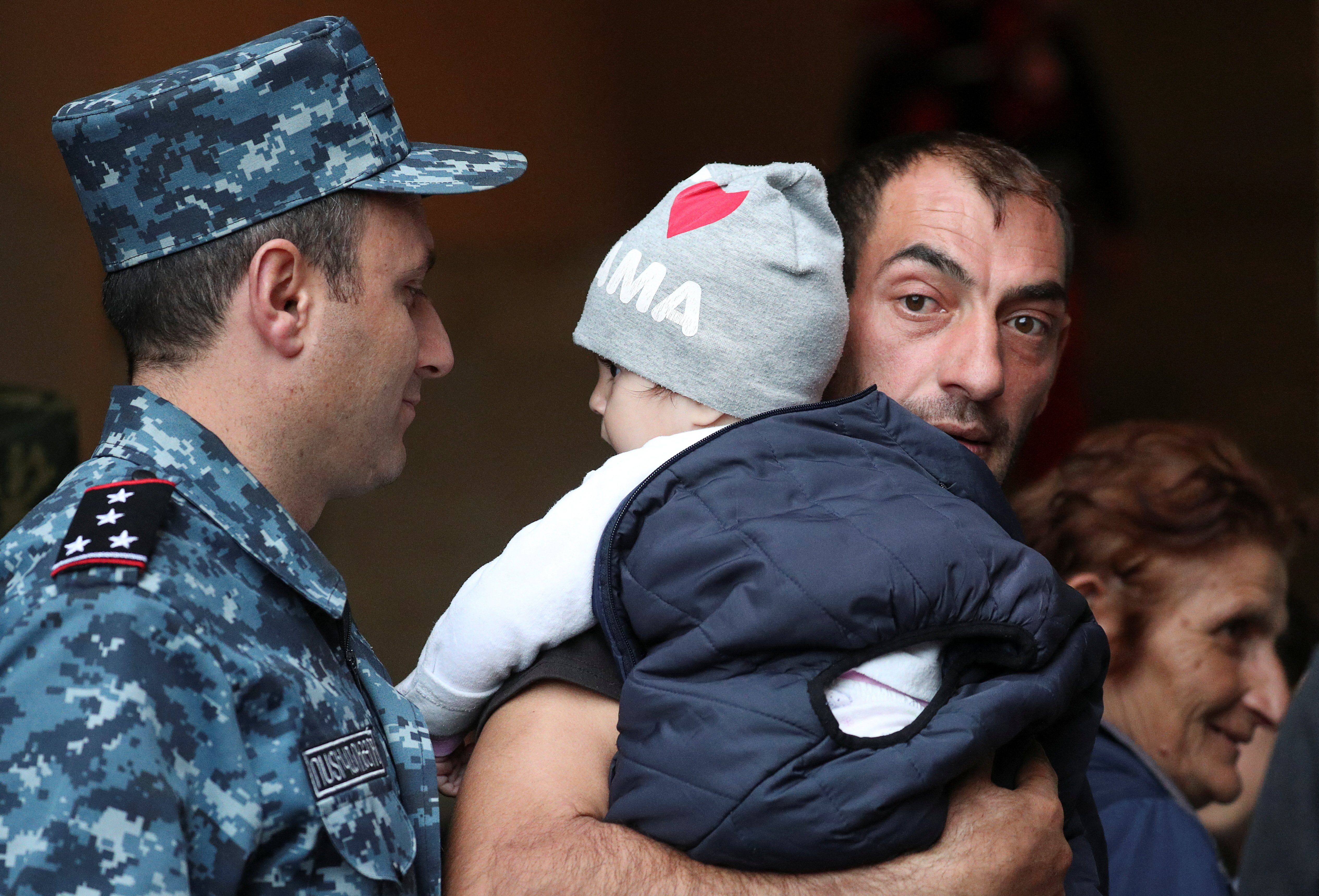Just days after Azerbaijan forced the surrender of ethnic Armenian forces in Nagorno-Karabakh, a wave of thousands of refugees from the region is streaming toward the Armenian border.
For 30 years, Nagorno-Karabakh lived as a de facto independent state with an Armenian majority, despite being officially part of Azerbaijan. But with Baku now fully back in control, there are fears that Azeri forces may engage in ethnic cleansing of the region. Both sides have committed grave human rights abuses over the course of decades of conflict.
The numbers are daunting. There are officially about 150,000 ethnic Armenians in Karabakh — if many of them were to seek safety in Armenia, the small country of 2.7 million could quickly be overwhelmed. (For comparison, imagine if 5 million people suddenly arrived in Germany, or 18 million in the US).
A burgeoning refugee crisis is adding to the pressures on Armenian PM Nikol Pashinyan, who has not only recently fallen out with Armenia’s long-time security partner, Russia, but is also facing protests in Yerevan by those who say he mishandled the Karabakh crisis and allowed the region to slip away.
A blast at a Karabakh fuel depot late Monday killed 20 and injured nearly 300, many of whom are in critical condition. Gas stations in the region have been overwhelmed by the thousands of ethnic Armenians trying to flee.
